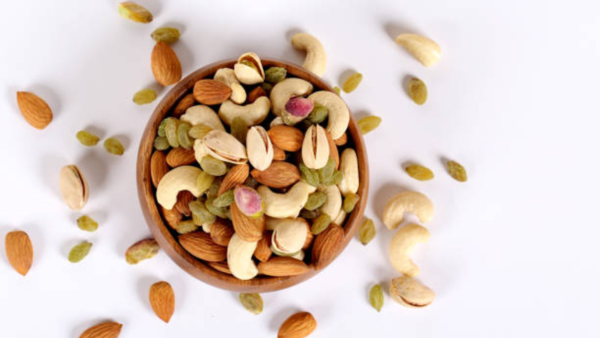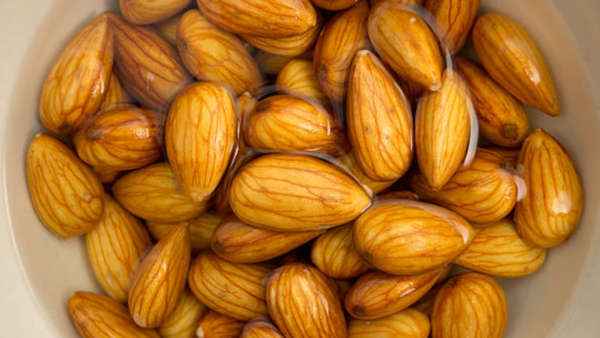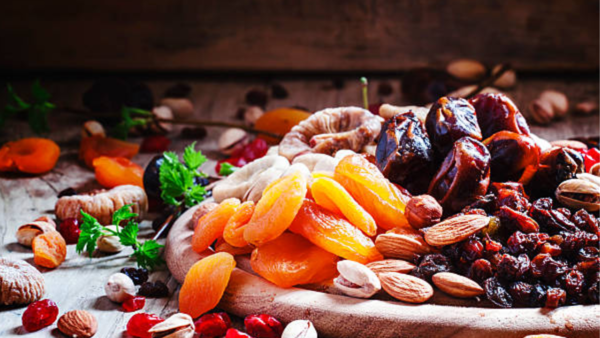Soaking dry fruits: Milk vs water? Which is healthier?
When it comes to the health benefits of soaking dry fruits, the choice between water and milk involves considering various factors such as nutrition, taste, and dietary preferences.

Soaking dry fruits enhances their texture, making them softer and easier to chew, which can be beneficial especially for those with dental issues or digestive sensitivities. It also helps to release their natural sugars and flavors, making them tastier and more enjoyable to eat. Soaking can increase their hydration and nutritional value by preserving essential vitamins, minerals, and antioxidants. This makes the fruits more versatile for use in various recipes, from salads to desserts, while also potentially aiding in digestion and nutrient absorption when consumed.
Soaking dry fruits in water does not give you extra calories
Soaking dry fruits in water is a common practice that enhances their texture and makes them easier to chew. Water hydrates the fruits, bringing out their natural flavors and softening their sometimes tough texture. This method is particularly beneficial for those looking to increase their water intake or avoid the additional calories and fat found in milk. From a health perspective, soaking in water retains the natural properties of the dry fruits without introducing any additional ingredients that might alter their nutritional profile.

From a nutritional standpoint soaking dry fruits in water preserves their natural sugars and fiber content without adding extra calories or fat. This makes it a suitable option for those following a calorie-conscious diet or aiming to manage their weight.
Soaking dry fruits in milk gives you the nourishment of milk as well
On the other hand, soaking dry fruits in milk offers a different set of advantages. Milk adds a creamy richness to the fruits, creating a more indulgent texture and taste. This method is popular in traditional recipes where the combination of milk and dry fruits not only enhances flavor but also provides additional nutrients such as protein, calcium, and vitamins. For individuals who struggle to consume enough dairy or are looking to boost their protein intake, soaking dry fruits in milk can be a convenient and enjoyable way to achieve these dietary goals.

Soaking in milk enriches the fruits with protein and calcium, which are essential nutrients for bone health and muscle function. For individuals with specific dietary needs, such as athletes or growing children, the protein and calcium from milk-soaked dry fruits can contribute to overall nutritional balance.
Health tips
When considering the impact on digestion, soaking dry fruits in water may be gentler on the stomach for some individuals, especially those who are lactose intolerant or have dairy sensitivities. Water-soaked dry fruits are generally easier to digest and less likely to cause discomfort compared to those soaked in milk, which can be heavier on the stomach due to the presence of lactose and fats. However, for individuals without these dietary concerns, milk-soaked dry fruits can still be enjoyed in moderation as part of a balanced diet.

For individuals with specific health goals, such as improving heart health or managing diabetes, the choice between water and milk for soaking dry fruits may depend on dietary restrictions and nutritional requirements.
Having raw almonds before meals can help reduce glucose spike: A discussion with Dr Anoop Mishra and Dr Seema Gulati

